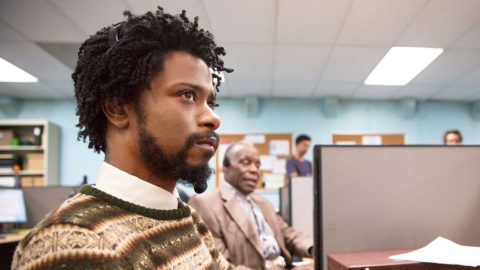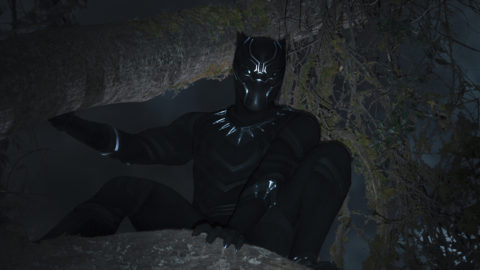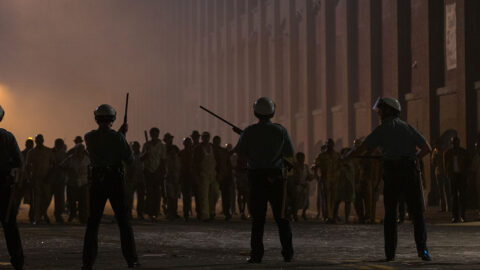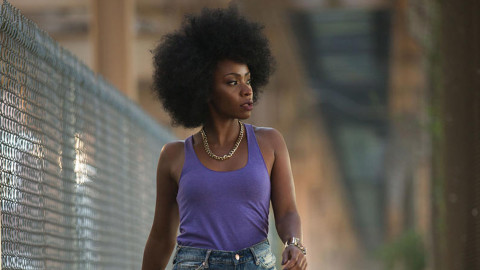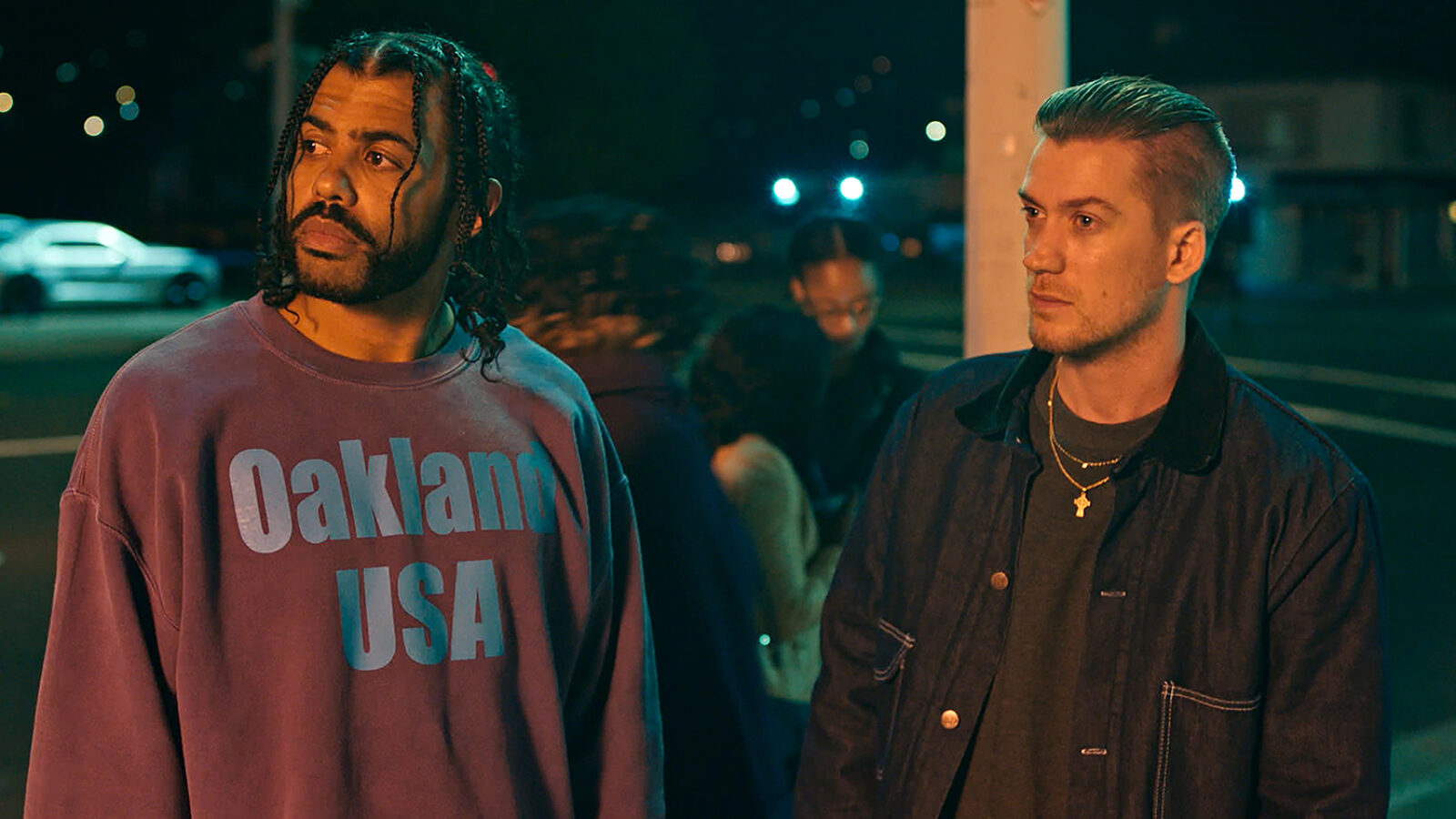
Review: Blindspotting
Written by and starring Tony Award–winner Daveed Diggs and Rafael Casal, Carlos López Estrada’s Blindspotting is on the surface a buddy comedy about two friends who work for a moving company in Oakland. Collin (Diggs) is on his final days of probation, living in a halfway house, and actively trying to stay out of the kind of trouble that could send him back to jail. Collin’s best friend, Miles (Casal), has a big heart but also a tendency to be reckless. They hustle to keep their heads above water in this rapidly gentrifying city, at one point tasked with emptying out a soon-to-be overpriced home for a tech bro.
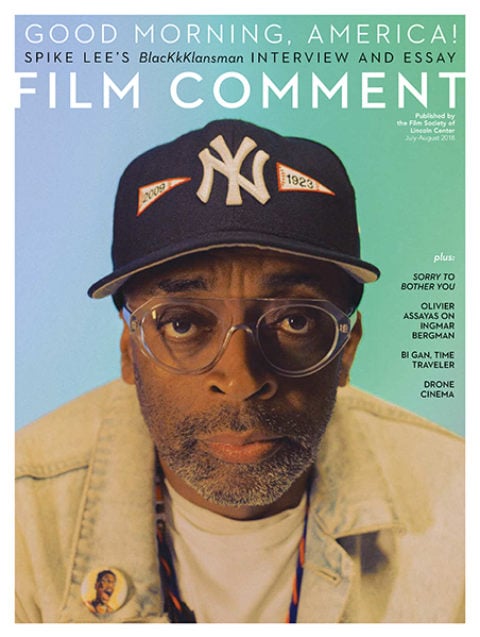
Their bond soon begins to fray, which sends the film into different territory tonally. When Miles purchases a gun on impulse (to protect himself, his son, and his girl, he says), Collin reminds him that the weapon would violate his probation. The gun becomes a central character, often ending up in the wrong hands (Miles’s young black son, being prepped for his own future police encounters, gets ahold of it), which jeopardizes Collin’s freedom—but also liberates him enough to eventually confront his demons.
The title of the film comes from the famous “Rubin’s Vase” optical illusion, which Collin’s on-again-off-again girlfriend, Val, is studying in her psychology class. The textbook image looks like either a vase or two faces in profile, but never both at the same time. It’s an effective illustration of a blind spot—something that you’re not fully seeing and hence not understanding. This relates to the greater theme of the film: the general perception of black men. Racial blind spots can result in death, as proven early on: hurrying home to make curfew, Collin witnesses the police shoot down a man who is running away.
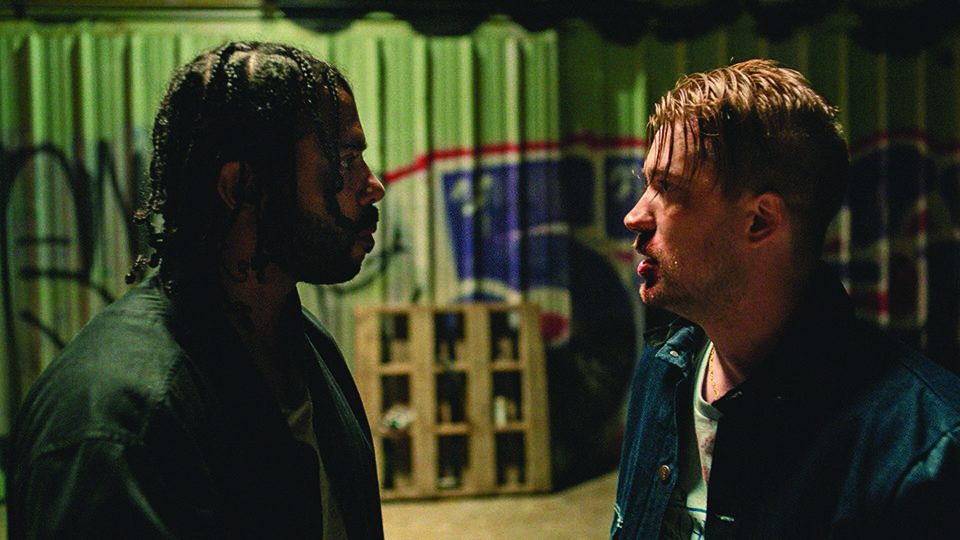
Despite the matter-of-fact way he relates this story to Miles, the experience begins to affect Collin’s psyche, as indicated by a series of surreal sequences pointedly set in graveyards and courtrooms. These visions reflect the ways in which he, much like the community who mourns the man’s death, is powerless. After all, how can you call the cops on the cops? Especially because Collin is a felon, his firsthand point of view is immediately delegitimized. As he processes these feelings, the film allows the audience into his interior world through a series of freestyles that fluctuate between goofy and dead serious, as does the climax, in which he lyrically confronts the white supremacy that’s crushing him. Such moments express that, to Collin, White America is only ever attentive to what a black man has to say if it comes in the form of a hot 16.
Blindspotting also functions as a love letter to Oakland. The opening sequence uses shots filmed around the community: children playing, murals, shots of Telegraph Avenue. It’s a tour of the city from the gaze of a lifelong resident, not a gentrifier; later, we hear Miles’s back-and-forth dialogue in local slang while trying to sell a boat. But the film is ultimately about how the city perceives Collin and Miles. Miles deeply resents the ever-changing landscape of his beloved Oakland, but that resentment is purely class-driven. His whiteness insulates him from facing any consequences for his actions or the dangerous racial conflicts that haunt Collin.
The film speaks loudest in its subtlest moments, but even when the message is expressed in a heavy-handed manner, the ability of Diggs, Casal, and Estrada to shift between comedy and drama and lean into their character dynamics anchors the weighty subject matter without exhausting the audience. Blindspotting doesn’t offer any answers; rather, it poses a series of questions, asking what it means to live, love, and interrogate the world around us in this current moment.
Tayler Montague is a freelance writer, film programmer, and native New Yorker.



